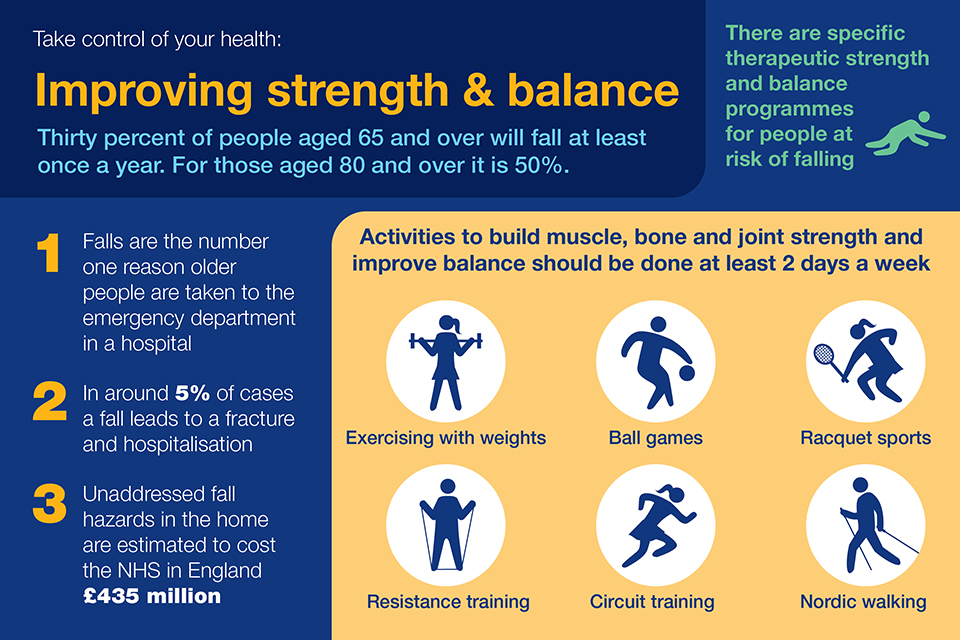Not known Details About Dementia Fall Risk
Not known Details About Dementia Fall Risk
Blog Article
Dementia Fall Risk - An Overview
Table of ContentsThe Ultimate Guide To Dementia Fall RiskThe Ultimate Guide To Dementia Fall RiskMore About Dementia Fall RiskNot known Facts About Dementia Fall Risk
An autumn risk analysis checks to see exactly how likely it is that you will drop. It is primarily provided for older grownups. The assessment typically consists of: This consists of a series of questions regarding your total wellness and if you have actually had previous drops or troubles with equilibrium, standing, and/or walking. These devices test your stamina, balance, and stride (the method you stroll).Treatments are suggestions that might reduce your threat of falling. STEADI includes 3 actions: you for your danger of dropping for your danger variables that can be improved to attempt to avoid falls (for instance, balance problems, damaged vision) to minimize your danger of dropping by using effective strategies (for instance, supplying education and resources), you may be asked a number of inquiries including: Have you dropped in the previous year? Are you worried concerning falling?
If it takes you 12 seconds or more, it might imply you are at higher risk for a loss. This examination checks toughness and equilibrium.
Relocate one foot midway forward, so the instep is touching the big toe of your various other foot. Relocate one foot totally in front of the various other, so the toes are touching the heel of your various other foot.
The smart Trick of Dementia Fall Risk That Nobody is Talking About
The majority of drops take place as a result of several contributing aspects; as a result, handling the risk of falling begins with determining the factors that add to drop risk - Dementia Fall Risk. A few of the most pertinent risk factors consist of: Background of prior fallsChronic clinical conditionsAcute illnessImpaired stride and balance, lower extremity weaknessCognitive impairmentChanges in visionCertain high-risk drugs and polypharmacyEnvironmental elements can likewise raise the risk for falls, consisting of: Inadequate lightingUneven or harmed flooringWet or unsafe floorsMissing or damaged handrails and order barsDamaged or poorly equipped devices, such as beds, mobility devices, or walkersImproper use assistive devicesInadequate guidance of the people living in the NF, including those that exhibit hostile behaviorsA effective fall risk monitoring program calls for a complete scientific analysis, with input from all members of the interdisciplinary group

The care plan ought to also include treatments that are system-based, such as those that promote a safe atmosphere (proper illumination, hand rails, grab bars, etc). The efficiency of the treatments ought to be reviewed periodically, and the treatment plan changed as required to show changes in the loss danger analysis. Implementing an autumn risk administration system using evidence-based best method can decrease the prevalence of drops in the NF, while restricting the possibility for fall-related injuries.
The Best Guide To Dementia Fall Risk
The AGS/BGS standard suggests screening all grownups aged 65 years and older for autumn threat yearly. This testing is composed of asking patients whether they have actually fallen 2 or more times in the you could try here previous year or looked for clinical interest for a loss, or, if they have actually not fallen, whether they feel unstable when strolling.
People who have fallen when without injury should have their equilibrium and stride evaluated; those with stride or balance problems must get additional analysis. A history of 1 loss without injury and without stride or balance issues does not necessitate more analysis beyond continued yearly fall threat screening. Dementia Fall Risk. An autumn danger evaluation is needed as component of the Welcome to Medicare exam

Some Ideas on Dementia Fall Risk You Need To Know
Documenting a drops history is one of the top quality signs for loss avoidance and management. copyright medications in certain are independent forecasters of drops.
Postural hypotension can usually be reduced by reducing the dosage of blood pressurelowering drugs and/or quiting medications that have orthostatic hypotension as Click Here a side effect. Use above-the-knee support tube and copulating the head of the bed boosted might likewise reduce postural reductions in blood stress. The recommended components of a fall-focused checkup are shown in Box 1.

A TUG time higher than or equal to 12 secs recommends high autumn threat. The 30-Second Chair Stand examination assesses lower extremity stamina and balance. Being incapable to stand up from a chair of knee height without utilizing one's arms shows enhanced fall risk. The 4-Stage Equilibrium test examines fixed balance by having the person stand in 4 settings, each considerably much more challenging.
Report this page